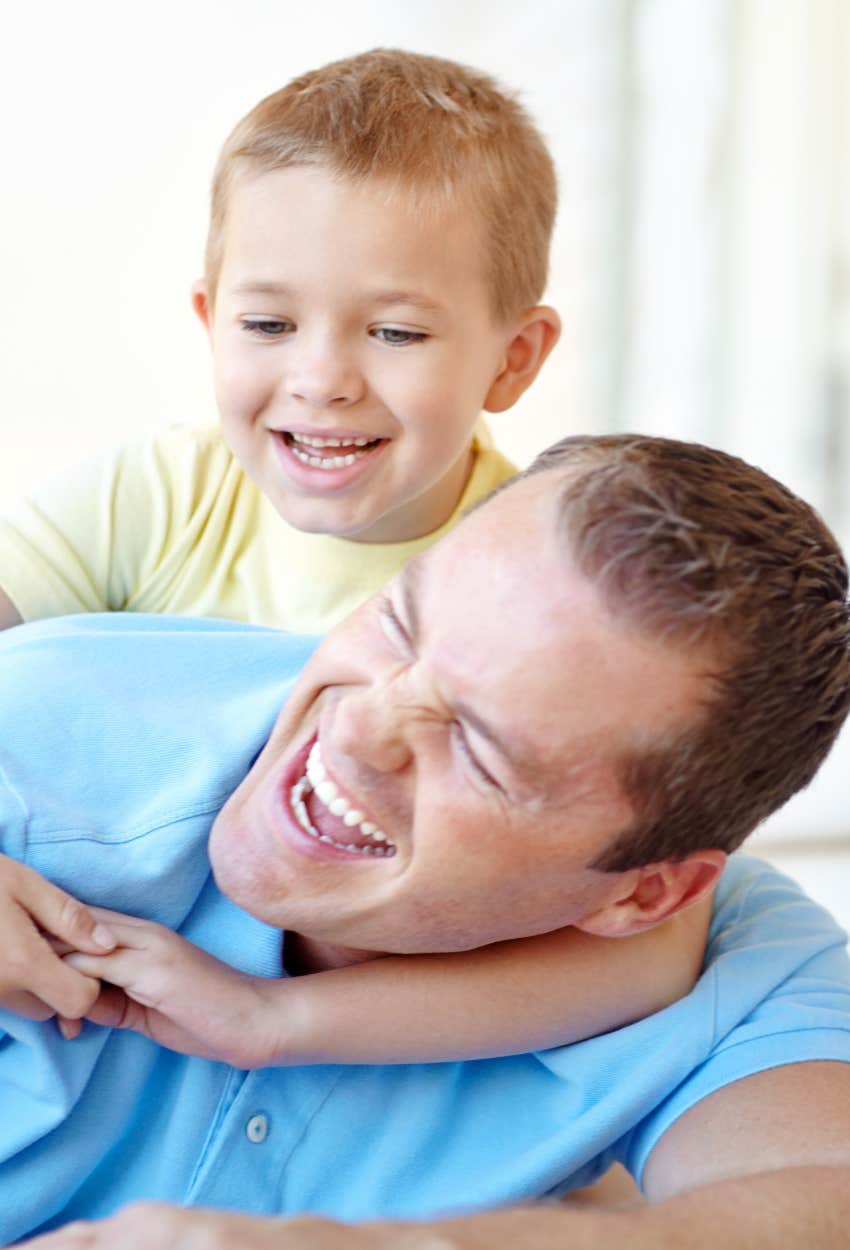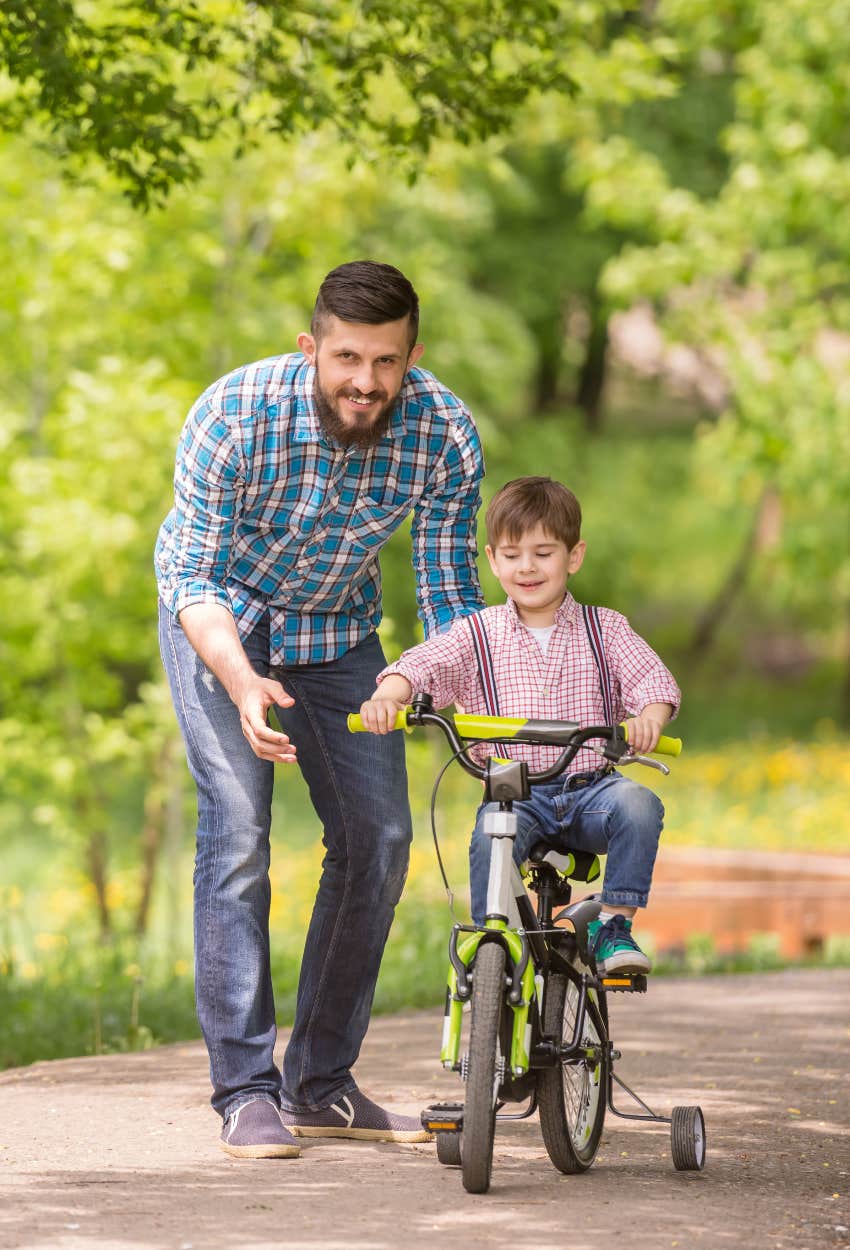Kids Learn Emotional Regulation From This Parent, According To Research
A psychologist suggests interactions with a particular parent help kids better process their emotions.
 Prostock-studio | Shutterstock
Prostock-studio | Shutterstock Parents are often a kid's first introduction to identifying and managing their emotions. From joy and sadness to anger and love, parents model appropriate emotional responses and teach children coping mechanisms to help them handle big feelings.
Yet it turns out, one specific parent has the biggest impact on a child's ability to regulate their emotions.
According to scientific research, kids learn emotional regulation from their dads.
In a TikTok, psychologist and mom-of-three Dr. Angelica Shiels referenced the book "Raising an Emotionally Intelligent Child" by John Gottman. "It had a whole chapter in it on the importance of a father figure," she noted.
 PeopleImages.com - Yuri A | Shutterstock
PeopleImages.com - Yuri A | Shutterstock
The book discussed the benefits of a present father figure in a child's life, noting that "throughout all phases of development they're gonna have better outcomes." That includes better emotional regulation.
“One of the topics that that book went into was the idea of rough and tumble play,” Shiels explained. “I remember at the time I had three little kids and my husband would come home late. Right before bedtime, he would be wrestling those kids and I would be so annoyed.” After reading this book; however, her entire perspective shifted.
“Kids do not learn emotional regulation from getting pep talks and having logical conversations,” she said. “They learn emotional regulation through feeling a little afraid in a safe, connected relationship” — like wrestling with their loving father.
Through being afraid in safe environments, kids learn important developmental practices.
Shiels explained that while roughhousing with their father, a child might be a little afraid; however, they realize that “dad has a smile on his face” and “he never hurts me.” This allows the kid to be brave and take risks without actually risking their emotional or physical safety.
 PeopleImages.com - Yuri A | Shutterstock
PeopleImages.com - Yuri A | Shutterstock
“That kid's nervous system is trained to trust others and to establish resilience with their own emotions in the context of relationships,” she explained. They learn to feel safe while also feeling powerless or vulnerable, something flashcards and talk therapy can not do as effectively.
The psychologist noted that male parents tend to be more supportive of their children taking risks.
“Male parents are statistically more likely to give support and confidence to their kid when they're faced with having to take a risk or when they feel like it's dangerous but it's not really dangerous,” Shiels said. “Kids need just as much as the nurturing. Someone trusted to be like, “You got this if it doesn't go well it's not gonna be catastrophic.”
Data from the Pew Research Center shows that 51% of moms describe themselves as overprotective compared to 38% of dads. While a child's safety is obviously important, providing them the space and support to take risks is necessary for their mental and emotional development.
 George Rudy | Shutterstock
George Rudy | Shutterstock
“Risky play fosters independence, risk-assessment skills, and ‘positive’ stress — the kind that is growth-promoting,” Psychology Today explained, advising parents to pay attention, offer feedback, and narrate their child’s actions to foster healthy risk-taking behavior.
“When a caregiver takes on a ‘coach’ role, it allows the child to keep going while feeling supported,” they wrote, referring to what Shiels said male parents thrive at.
Nia Tipton is a staff writer with a bachelor’s degree in creative writing and journalism who covers news and lifestyle topics that focus on psychology, relationships, and the human experience.

